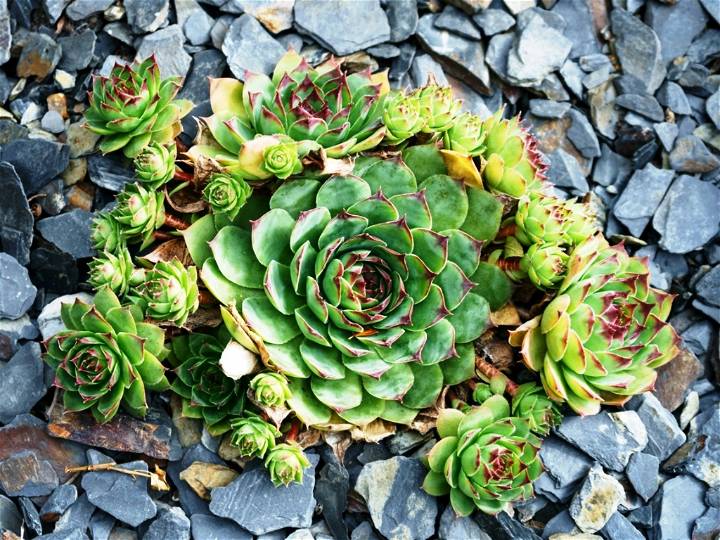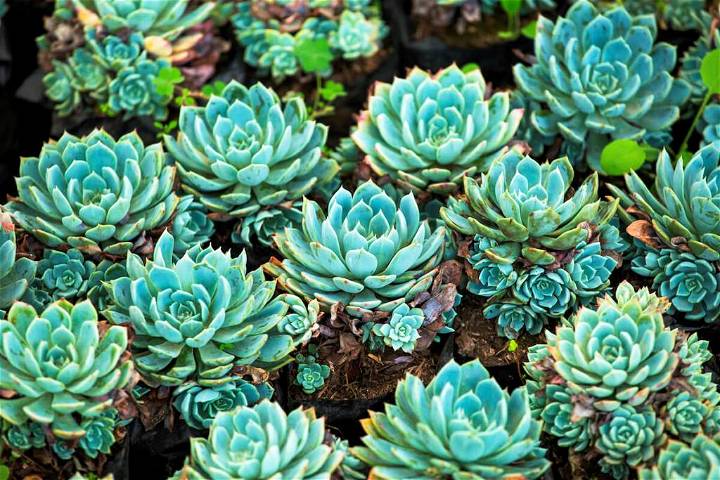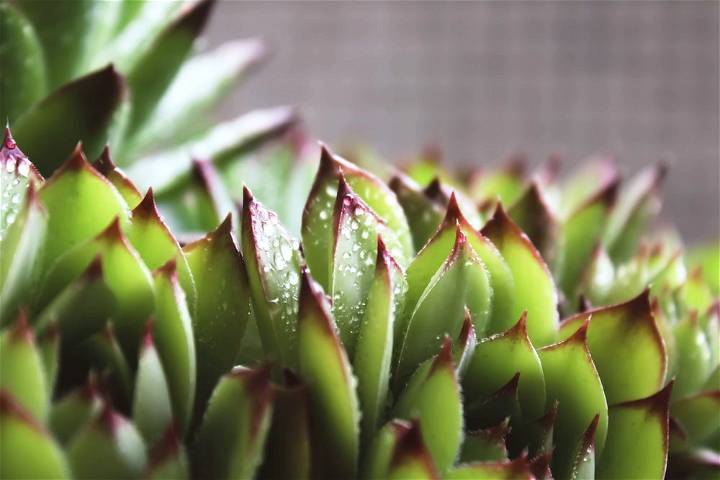Do you love gardening and all things plants? If so, you'll want to add hens and chicks to your garden repertoire. These little succulents are easy to grow and propagate, making them a great choice for gardeners of all levels of experience. Keep reading for everything you need to know about growing hens and chicks in your garden.

About Hens and Chicks
Hens and chicks, also known as hens and chicks succulent, is a popular variety of succulent that is prized for their attractive foliage and easy maintenance. This low-growing plant has rosettes of leaves that are arranged in a star pattern around its center. The leaves are often variegated with shades of green, yellow and pink, and the plant produces small white flowers in summer. Hens and chicks are easy to care for, and they make great houseplants or additions to succulent gardens.
Hens and Chicks Care
To care for your hens and chicks plant, water it when the soil is dry, being careful not to overwater. The soil should be well-draining and slightly sandy, and the plant should be placed in a location that is bright but not too sunny. In addition, you may need to occasionally re-pot the plant or prune it to keep its shape looking neat and tidy.
Hens and chicks are easy to care for and require very little maintenance. In order to keep your hens and chicks healthy and thriving, it is important to provide them with proper care.
1. Soil
It is important to use a well-draining, sandy soil when growing hens and chicks. The best soil for hens and chicks succulents is a mixture of sand, loam, and organic matter. This type of soil drains well and doesn't compact easily, which is ideal for succulents. You can purchase a pre-made succulent mix at your local garden center, or you can make your own by mixing equal parts of each component.
2. Watering
When it comes to watering, hens and chicks succulents are very drought tolerant and can store water in their leaves. This means that they don’t need to be watered very often. In fact, overwatering is one of the most common problems with these plants. It is best to wait until the soil is dry to the touch before watering your hens and chicks.
3. Temperature and Humidity
Hens and chicks plants are native to dry, arid climates and can tolerate long periods of drought. They do best in full sun but can also tolerate partial shade. These tough little plants are very heat and cold tolerant and can even withstand frost.
When it comes to humidity, hens and chicks plants prefer low humidity levels. This means that they are ideal for growing in arid or semi-arid climates, as well as indoors in homes or offices with dry indoor air. However, it is important to keep the soil around hens and chicks plants moist at all times, as these plants are sensitive to even slight changes in moisture levels.
4. Lighting
In terms of light, hens and chicks plants do best in bright, indirect sunlight. You can grow them indoors or outside, but they should be kept out of direct sunlight as this can cause their leaves to burn. If you are growing them outdoors, it is important to make sure they are protected from strong winds that may damage their leaves, as well as harsh temperatures and heavy rains.
5. Fertilizer
To care for hens and chicks plants, it is also important to provide them with proper fertilizer. A regular application of liquid or slow-release fertilizers is ideal for these types of succulents, helping them to grow healthy and strong.
Overall, hens and chicks are easy to care for plants that make a great addition to any home or garden. With proper care, they will thrive and provide you with beautiful blooms for many years to come. So if you are looking for a low-maintenance, easy-to-grow plant, be sure to add hens and chicks to your garden today!

Hens and Chicks Types
Hens and chicks are a type of succulent plant that is known for their distinctive appearance and thick, fleshy leaves. These plants typically feature multi-colored flowers, ranging from reds and pinks to blues and purples.
There are several different varieties of hens and chicks, each with its own unique characteristics. Some of the most popular types include the following:
- Sempervivum tectorum: This variety is also known as houseleek or liveforever. It is one of the most common types of hens and chicks, and is characterized by its rosette shape and greenish-brown leaves.
- Sedum morganianum: Also known as burro's tail or donkey's tail, this plant has long, trailing stems covered in small, fleshy leaves. It is a popular choice for hanging baskets and container gardens.
- Echeveria elegant: This variety is also commonly referred to as Mexican snowball or queen's crown. It is prized for its large rosettes and dazzling flower colors, including pink, red, blue, and purple.
Propagating Hens and Chicks
Want to learn how to propagate hens and chicks? Hens and chicks are easy to propagate from stem cuttings. Simply take a cutting from the mother plant, allow it to callous over for a few days, and then plant it in well-draining soil. The cutting will soon take root and start to grow. You can also propagate hens and chicks by dividing the offsets, or "chicks," from the mother plant. Simply carefully remove the offsets from the soil around the mother plant, and then replant them in well-draining soil. The offsets will soon take root and start to grow.
How to transplant hens and chicks?
Transplanting hens and chicks is simple and only requires a few steps.
- Choose a healthy hen and chick plant that has several offsets, or baby plants.
- Gently remove the plant from its current pot.
- Carefully loosen the roots and replant in a new pot with fresh succulent soil.
- Water the plant well and allow it to drain completely.
- Place the plant in a sunny location and wait for new growth!
With just a little bit of care, you can easily transplant hens and chicks and enjoy these pretty succulents for years.

How fast do hens and chicks spread?
Hens and chicks are a type of succulent plant that is known for their ability to spread quickly. In just a few short weeks, a single plant can produce dozens of new plants. This makes them perfect for filling in bare spots in your garden or for creating a quick ground cover. Additionally, hens and chicks are quite low maintenance, requiring only minimal watering and care to thrive. If you're looking for a fast-spreading plant that is easy to care for, then hens and chicks might be the ideal choice for you!
Conclusion
Whether you are looking for a beautiful addition to your garden or a low-maintenance houseplant, hens and chicks are an excellent choice. With their striking flowers and distinctive foliage, these succulents are sure to make a statement in any setting. And with proper care, your hens and chicks will thrive and provide you with years of enjoyment.

